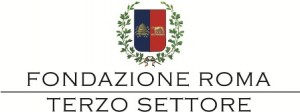***NEW*** Multiple Modernities Program
The theory of “multiple modernities”, which was first formulated by Shmuel Eisenstadt and has grown into a prolific school of thought with a long series of programmatic publications and related research-programmes, offers a contemporary theory about civilizational differences that wants to overcome clash-of-civilization type of scenarios of globalization. The multiple modernities approach holds that the Western trajectory of modernization must not be seen as the only possible pathway to modernity. Instead, we find in the world a multiplicity of continually evolving modernities, each of which realizes a particular institutional and ideological interpretation of the modern programme according to specific cultural prerequisites. Religions are usually considered one element that can account for the differentiation of pathways to modernity. The aim of this workshop is to examine more closely the role that religions play in the emergence of multiple forms of modernity and to explore the place and normative impact of pluralistic modern trajectories on the conceptualization of global post-secular society, as, for example, recently put forward by Jürgen Habermas.
